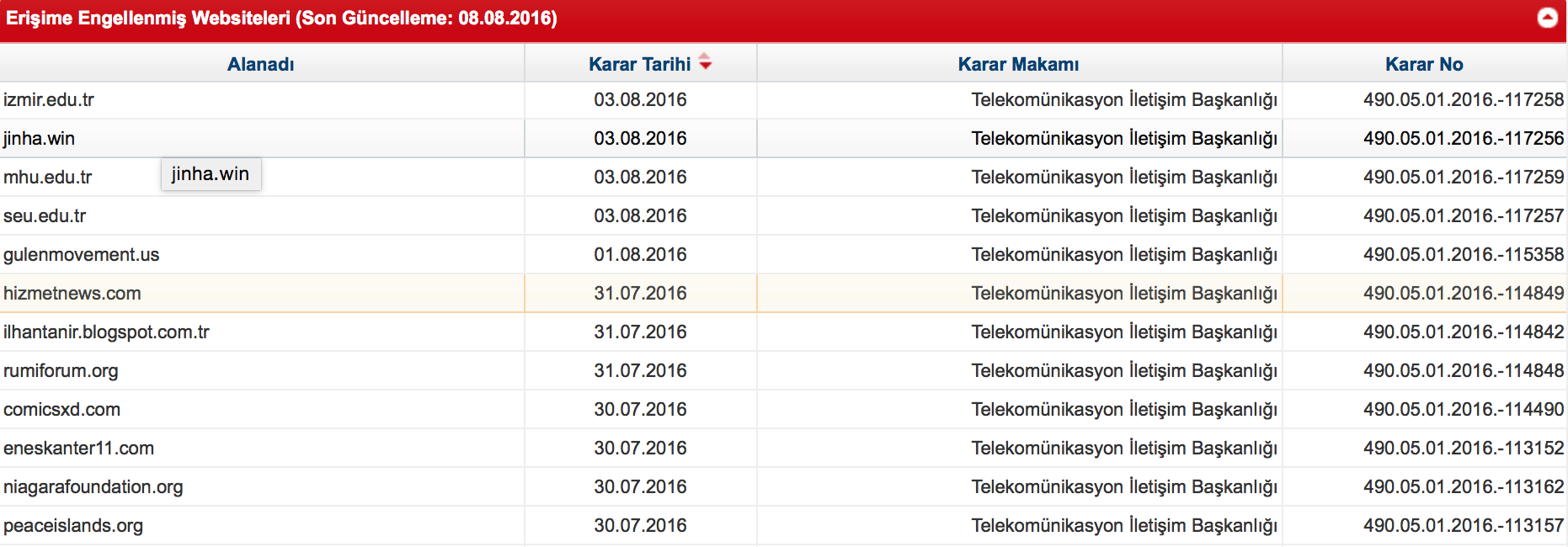Data Highlight: Learning About the Internet in Turkey
In Turkey’s recent coup, social media and messaging services such as Whatsapp played a large role. In the aftermath of the coup, the government blocked and continues to block various websites across the internet. The Net Data Directory has a number of data sources that contain information on Turkey's complex digital environment.
Turkstat, a government website, provides the most basic and foundational data about internet infrastructure and usage in Turkey. The “Information Society Statistics” report includes information on computer usage, internet access, and the number of websites registered to both individuals and businesses from 2005 to 2015. The government breaks down individual internet and computer usage by gender; as of 2015 around 65% of both computer and internet users are male, despite the fact that the ratio of men and women in Turkey is close to 1:1. Though men comprise the majority of internet users, the number of women using the internet has been increasing each year since 2005. As far as businesses are concerned, over 65% of Turkish businesses had their own website in 2015, up from 48.2% in 2005.
Although having a website is an important for businesses, the growth of online advertising may shed more light on the economic impact of the internet in Turkey. The Interactive Advertising Bureau publishes regular reports on the state of digital advertising in various countries, including Turkey. A recent report, some of which can be seen below, found that revenue from digital advertising grew 18.8% in Turkey between 2014 and 2015, but revenue from mobile advertising grew 60.1%, with approximately 30% increases in both video advertisements and in-game mobile advertising. Advertising information can help researchers understand how active internet users are and what types of content these users are accessing.

(TL stands for Turkish Lira)
The Net Data Directory also has data sources that help paint a picture of internet freedom. For example, the Open Net Initiative (ONI) offers information on internet filtering in Turkey. In 2010, it found that Turkey selectively filtered political content, social content, and internet tools. Furthermore, the report also contains information on regulations, laws, and filtering systems in Turkey. The report also analyzes political factors such as the impact of Turkey’s quest for EU membership on Turkey’s regulation on internet speech. While this report is almost five years old, there are other more recent sources on the Net Data Directory regarding internet censorship.
Engelli Web, a Turkish language website, lists website blockages in Turkey as they occur and provides the source for the blocks, such as the agency of the government that ordered them and the dates of the blocks. The website also includes a blog, usually updated a couple of times each year, which describes some of the more notable blocks. Recently, the government has blocked various Gulenist websites in the wake of the coup. Just days before the family of Enes Gulen (formerly Enes Kanter), the NBA basketball player who supports Fethullah Gulen, disowned him, the Turkish government blocked his personal website, Eneskanter11.com.
Interested in learning more? Check out all of our data sources that contain information on Turkey.




